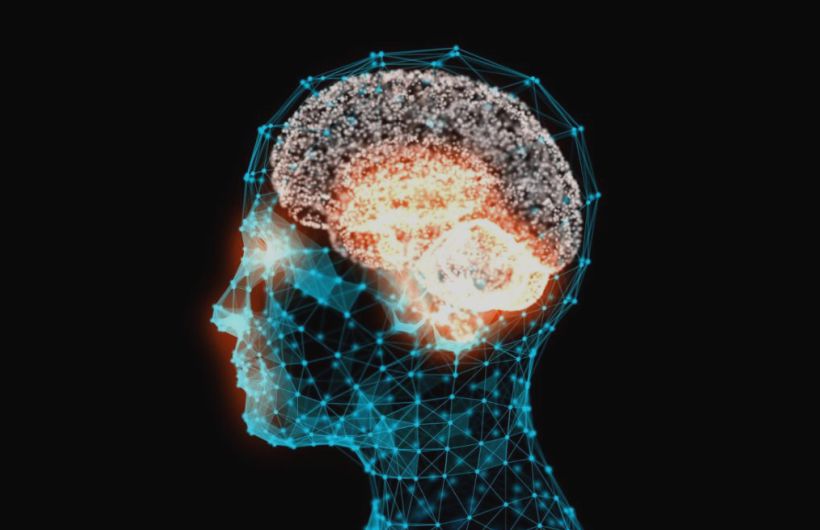Learn about emerging topics in computer science as well as the latest technologies and acquire the necessary skills and insights needed to lead in IT projects in organizations you serve or in your own entrepreneurial startup.
STUDY MODEL
3 years online
ACCREDITATION
VALUE ADD
English Language Skills
Learning how to master a language is no easy task. During this course, students will have the opportunity to further develop their understanding of the rules of the English language and apply them to a variety of contexts and situations, including academically.
Digital Skills
Through this course, students will be exposed to important digital skills needed for their academic courses, ranging from online safety to how to communicate through digital means.
Academic Writing
Students will be exposed to academic writing rules and techniques, including effective and extensive reading strategies, effective participation in seminars and delivery of presentations, and listening to and recording information effectively from lectures.
Foundation of Mathematics
Maths is a fundamental aspect of any business management toolkit, whether it be resource planning, financial planning, or budgeting, the list is endless. The course embeds mathematics using a variety of contexts, tools, and scenarios, and students will develop the essential skills required throughout business practices to plan, budget, design, and use mathematics effectively.
Principles of Management
The course aims to provide a comprehensive introduction to the key elements of a business organisation, and competing theories and models of an organisation and its environment, providing a critical perspective on the main functional areas of management. It will also build a foundation knowledge of the different theoretical approaches to management and decision making while developing analytical skills to identify the links between the functional areas in management, organisations, management practices, and the business environment.
Introduction to Economics
The course introduces students to the analysis of a market economy, with a focus on the strengths and weaknesses of the price system, and the role of government intervention in the economy. Students will be introduced to economic analysis relevant to the analysis of a wide variety of questions in business strategy and public policy conducted at an international, national, or sub-national level. Specific examples addressed during the semester will include environmental policy, domestic tax policy, labour standards, international trade, and health policy.
English Language for Business
The course introduces students to the best practices, rules, and techniques to confidently apply the English language in the business context.
Computational Thinking (15 credits)
Throughout this module, students will learn how computers “think”, and explore how to construct arguments using logic form, the rules of critical thinking, and how to effectively break down problems into simpler tasks, while recognising patterns. We will also discuss the use of logical calculations and corresponding software tools. To conclude, we will look at how to use algorithms to solve problems using logic and computational thinking.
Mathematics for Computing (15 credits)
In order to fully understand the challenges and opportunities brought by computers, a sound understanding of mathematics is required to work in computer science, regardless of the field.
The module introduces students to the basic mathematical concepts needed to understand computing, such as binary, number bases, modular arithmetic, sequences and series, and an introduction to Kinematics.
Algorithms and Data Structure (30 credits)
The module introduces relevant algorithmic techniques, such as greedy algorithms and dynamic programming, while learning the use of the most efficient data structures to allow our algorithms to manipulate data. From arrays and linked lists, starks and queues, dynamic arrays to amortised analyses, hash tables, and binary search trees.
Basics of Cryptocurrency (15 credits)
The way we look at and consider money has radically changed in the last few decades. With the rapid increase in the use of bitcoins and NFTs in a variety of sectors, managers need to quickly grasp the principles behind blockchain technologies and cryptocurrency, to fully exploit their potential.
Computer Architecture, Networks and Operating Systems (15 credits)
During the module, students will be exposed to essential topics in computer networks and operating systems, including principles and features. Furthermore, we will be able to assess the suitability of Computer Architecture in an organisation, while considering also Cloud Computing rules.
Programming Lab (15 credits)
Computer scientists should have a clear understanding of how to program, using different languages according to their end goal. Although it would be exceedingly difficult to study all the programming languages available out there in one course, students will get the opportunity to test the C programming language as well as Python. During the module, students will also be exposed to additional languages, which can be studied independently to enrich their skills and knowledge.
Technology Management (15 credits)
The module aims to provide students with a deep, practical understanding of what a technology strategy is, and its link to the organisation both internally and externally. Through the development of a strategic view, students will be able to recognise threats and advantages in a technology environment and will formulate their strategic plans to deploy successful technology strategies at all levels of the organisation.
Data Science, IoT and Big Data (15 credits)
Technology has a tremendous role in our everyday lives, from Artificial Intelligence to blockchain, Big Data and bitcoins, technology is everywhere. During this course, we will look at the massive impact data has on the various aspects of our lives, including how to present it and apply it with modern tools.
The advent of the Internet of Things (IoT) and its significant impact on globalisation is one of the most important topics of the Industry Revolution 4.0. Big Data and its analytics are fundamentals to understanding the impact of smart objects and their daily applications.
Object-oriented Programming and Design (15 credits)
The course aims to provide students with the tools and skills to tackle complex programming problems, using the object-oriented paradigm to simplify the design as well as the implementation process. Students will learn the C++ programming language.
Software Engineering (30 credits)
The module concentrates on developing further the understanding of the principles of software engineering. Students will build on previous knowledge, such as object-oriented programming, to deepen their practical knowledge in this subject.
Theory and Application of Artificial Intelligence (30 credits)
In the modern world, Artificial Intelligence has become a fundamental tool in a variety of sectors. During this course, students will have the opportunity to deep dive into the theoretical aspects of AI, including its methodologies, tools, ethical, and legal implications.
Introduction to Blockchain (15 credits)
The module builds upon the knowledge from “Basics of Cryptocurrency,” to deep dive into the theoretical and legal aspects of blockchain and its applications, including smart contracts, NFTs (non-fungible tokens), and financial tools.
Cybersecurity and Cryptocurrency (15 credits)
A fundamental aspect of computer science is security, especially in the past decade. There has been an increasing number of reports relating to the growth of cyber security incidents, ransomware cases (in a variety of sectors), as well as issues related to data privacy breaches and fraud.
Machine Learning (15 credits)
During this module, students will be introduced to the principles of Machine Learning, in particular, supervised and unsupervised learning, and learn to confidently extract specific features from data automatically in order to solve predictive tasks.
In recent decades, we have seen how useful such techniques are, in order to conquer new tasks more efficiently, such as speech recognition, image recognition, robot control, personalisation and much more.
Advanced Programming Lab (15 credits)
Students will have the opportunity to test their acquired knowledge of programming languages of their choice, as well as challenge themselves with new languages.
This will be an opportunity to simulate possible situations in the work environment, where students will be expected to research and try different methods/tools to solve a problem.
Human-Computer Interaction and Ethical Aspects (15 credits)
The module aims to introduce students to the fundamentals of human-computer interaction, from how computer technology should be designed to the way computers and humans interact.
Interaction Design (15 credits)
Building upon the knowledge and concepts from the module “Human-Computer Interaction,” we will look at principles and theories of interaction design, concentrating in particular on user-centred design and interaction design activities and methods. We will look in detail at the techniques required from a product design perspective, and the various contexts requiring consideration.
Software Project Management (15 credits)
During the module, students will have the opportunity to learn about the principles and techniques of project management as applied to a variety of systems. Furthermore, tools and techniques for project estimation, responsibilities, risk management and so forth.
Data Mining (15 credits)
Data Mining is a relatively new field that involves processes and techniques to extract patterns that are hidden, non-trivial, new, and potentially useful, from a large amount of data. Students will have the opportunity to test their knowledge through a practical project.
Dissertation (30 credits)
The module aims to support and guide students while they independently produce a piece of academic research, called a dissertation. Students have the opportunity to apply their prior knowledge in qualitative and quantitative research methods for business, to a chosen subject.




